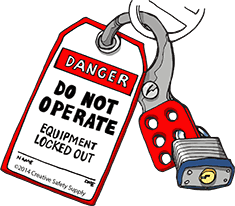gustavosilvano
Electrical
Hello there!
My name is Gustavo and I work at a steel mill plant here in Brazil. Here we use a form to register the blockage of our machines. These blockage are done to prevent unintentional activation of the machine during an intervention, such as maintenance, cleaning, adjusting, etc.
I want to know if out there is common to fill forms when you're going to block the machine. These form have an area for the operator, for the electrician, and for any transference that may happen due to end of shift.
How is the practice of you guys?
Best regards.
Gustavo
My name is Gustavo and I work at a steel mill plant here in Brazil. Here we use a form to register the blockage of our machines. These blockage are done to prevent unintentional activation of the machine during an intervention, such as maintenance, cleaning, adjusting, etc.
I want to know if out there is common to fill forms when you're going to block the machine. These form have an area for the operator, for the electrician, and for any transference that may happen due to end of shift.
How is the practice of you guys?
Best regards.
Gustavo

